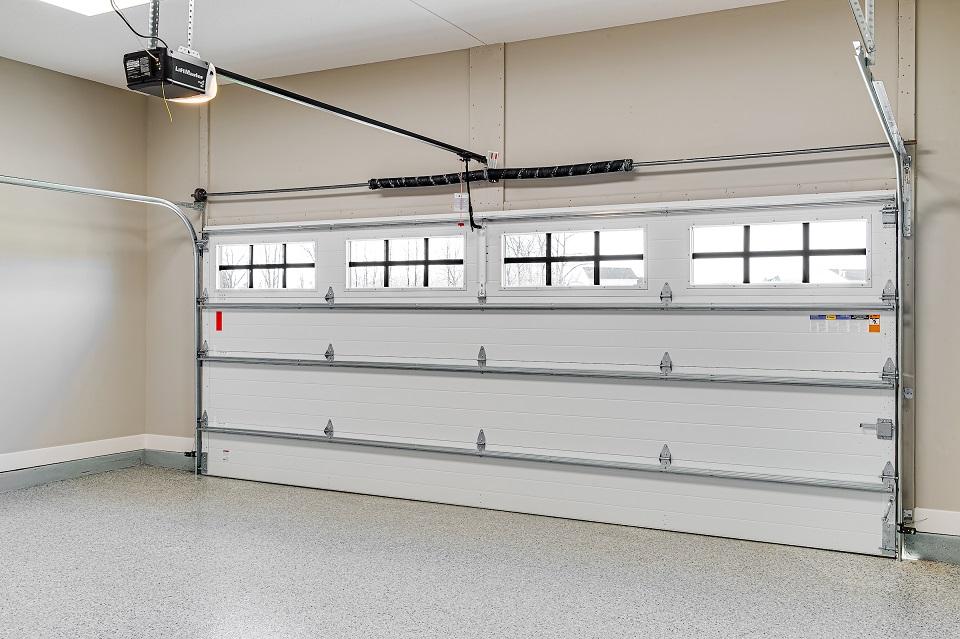When it comes to garage doors, many homeowners are unaware of the crucial role played by the spring mechanism. The spring on a garage door is a small yet powerful component that enables smooth and efficient opening and closing of the door. Understanding what these springs do and how they function is essential for proper maintenance and ensuring the safety of your garage door system. In this article, we will delve into the details of garage door springs, their types, functions, and maintenance requirements.

Types of Garage Door Springs
There are two main types of springs commonly used in garage doors:
- Extension Springs: These springs are typically found on older garage doors and are positioned above the horizontal tracks on each side of the door. They stretch and contract to assist in lifting and lowering the door.
- Torsion Springs: Most modern garage doors are equipped with torsion springs. These springs are mounted horizontally above the door opening and use torque to counterbalance the weight of the door. Torsion springs offer better durability, stability, and safety compared to extension springs.
Functions of Garage Door Springs
- Counterbalancing the Weight: The primary function of garage door springs is to counterbalance the weight of the door, making it easier to open and close manually or with the assistance of a garage door opener.
- Smooth Operation: By storing and releasing tension, the springs help ensure smooth and controlled movement of the door, preventing it from slamming shut or crashing down.
- Minimizing Wear and Tear: The springs absorb the majority of the door’s weight, reducing the strain on other components, such as the opener, hinges, and tracks. This minimizes wear and tear, prolonging the lifespan of the entire system.
Importance of Proper Spring Balance
Maintaining the correct spring balance is crucial for the safe and efficient operation of your garage door. Here’s why:
- Safety: An imbalanced door can be hazardous, as it may suddenly fall or become difficult to lift. Proper spring balance ensures that the door remains stable and prevents accidents or injuries.
- Smooth Operation: When the springs are properly balanced, the door will move smoothly along the tracks, minimizing jerking or uneven movement.
- Extended Lifespan: By distributing the weight evenly, the springs reduce stress on other parts of the door, including the opener and tracks. This helps prevent premature wear and prolongs the lifespan of the entire system.
Signs of a Failing Spring
Over time, garage door springs can wear out or break due to constant tension and usage. Here are some signs indicating a failing spring:
- Visible Gaps: If there are gaps in the spring or it appears stretched, it may be nearing the end of its lifespan.
- Door Imbalance: An imbalanced door that struggles to stay open or closed is a clear indication of a spring problem.
- Loud Noises: If you hear loud popping or creaking sounds when operating the door, it could be due to a worn-out spring.
If you notice any of these signs, it’s important to have a professional inspect and replace the springs as needed to avoid further damage or accidents.
Maintenance Tips for Garage Door Springs
Proper maintenance can help extend the lifespan of your garage door springs and ensure optimal performance. Consider the following tips:
- Regular Inspection: Inspect the springs for signs of wear or damage, such as rust, gaps, or fraying. If you notice any issues, contact a professional technician for repair or replacement.
- Lubrication: Apply a silicone-based lubricant to the springs, hinges, and other moving parts to reduce friction and promote smooth operation.
- Avoid DIY Repairs: Garage door springs are under high tension and can be dangerous to handle. It is recommended to leave repairs or replacements to trained professionals.
Frequently Asked Questions (FAQs)
Q1. How long do garage door springs typically last?
Q2. Can I replace garage door springs myself?
Q3. Why is it important to have a professional inspect my garage door springs?
Q4. Can I use any type of lubricant on my garage door springs?
Q5. How often should I have my garage door springs inspected?
Conclusion
The spring on a garage door is a vital component that ensures smooth operation, balance, and safety. Understanding its functions and importance allows homeowners to appreciate the significance of proper maintenance and regular inspections. By keeping the springs in good condition and addressing any issues promptly, you can enjoy a reliable and safe garage door system for years to come. Remember, when it comes to garage door springs, it’s always best to consult a professional for repairs and replacements.



Leave a Reply